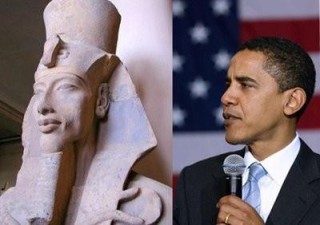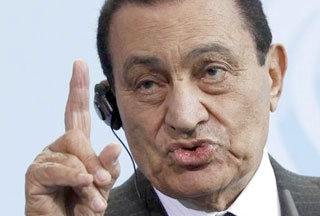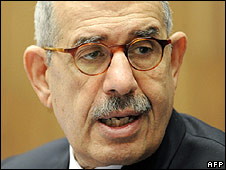Can Obama stick to his Cairo speech and deliver on his promises

Four months after he took office, and in what seemed as a spontaneous and creative initiative, President Obama flew to Cairo and delivered a direct appeal to the Islamic and Arabic world for a “new beginning” with the United States, acknowledging historical mistakes made over centuries in the name of culture and religion that he said are now overshadowed by shared interests.
When President Obama- or the new king Tut, as some of the Egyptians liked to call him – called for a “new beginning” in U.S. relations with the Muslim world a year ago, he picked Cairo as the setting for his speech for what Egypt enjoyed as being the cradle of a unique ancient pharaonic civilization and modern geopolitical power respected by most African, Muslim and Arab nations. Nevertheless it was a provocative choice, since it was the capital of a close ally of the United States but also of the three-decades-old autocracy of Hosni Mubarak.

When Obama declared his commitment to “governments that reflect the will of the people” and said that leaders “must maintain your power through consent, not coercion,” Egyptians thought they heard a subtle reference to their aging leader. One enthusiastic Egyptian shouted, “Barack Obama, we love you!”
People in the Arab world were really beginning to love Obama, they applauded his eloquent Cairo speech and saw in it, a new U.S reaching out to them, with the promise to become a fairer player in the arena of the Arab – Israeli conflict and hopefully supports – in a peaceful way – their longing for democracy which they are striving for.
President Barack Obama sounded like he was up to charting a new course on U.S. relations with the Middle East by implementing peaceful policies that encourage genuine democratic reform in the region, Obama undertook a bold mission of shattering the 9/11 myth of the clash of civilizations as we heard him in the speech quoting John Adams, the Koran, the Bible and the Talmud and stating that “as long as our relationship is defined by our differences, we will empower those who sow hatred rather than peace, those who promote conflict rather than the cooperation that can help all of our people achieve justice and prosperity.”
And may be that was one of the major criteria upon which Obama was nominated and granted the 2009 Nobel peace prize.
His address left the Egyptians heartened by his promise to listen to and understand the hopes and aspirations of Arabs and Muslims, despite the skepticism of many Arab observers of Obama’s stance on the Middle East policy.
That skepticism was understood because The United States, for half a century, has frequently supported repressive regimes that routinely violate human rights, and that torture and imprison those who dare criticize them and prevent their citizens from participation in peaceful civic and political activities.
U.S. support for Arab autocrats was supposed to serve U.S. national interests and regional stability. In reality, it produced a region increasingly tormented by rampant corruption, extremism, and instability.
Where did the U.S go wrong?
And this exactly where the U.S went wrong, it allayed with the dictators rather than the people of the Arab and Muslim world, thus it turned its back on Middle East democracy. This not only hurt the credibility of the United States, dismayed democrats and emboldened extremists in the region, but also sent a powerful message to autocrats that they could reassert their power and crush the opposition with impunity.
Such is the case with Egypt,– where an 81-year-old strongman, Hosni Mubarak, is ailing; where a solid and growing pro-democracy movement has gained hundreds of thousands of supporters; and where a credible reform leader has suddenly appeared, in the form of the Nobel Prize-winning former Director General of the International Atomic Energy Agency (IAEA), Mohamed ElBaradei. The movement he leads is pressing Mubarak to lift an emergency law — imposed 28 years ago — that blocks political organizing and freedom of assembly, and to change the constitution so that next year’s presidential election can be genuinely democratic.

Meanwhile, Mubarak is in ill health and may not even make it to the next fall 2011 presidential election. His regime has systematically excluded or discredited new leaders who enjoy any public support, leaving the field of potential successors- except for his son, Gamal – deliberately impoverished.
One would think that under the circumstances both Egyptians and the U.S. government – with the Obama`s earlier assertion to support any emerging Mideast democracy – would be working to put in place an open political process so that any new leader could win the support of the people and thus ensure order in this important nation.
But the Egyptian government is paralyzed by the aging Mubarak’s refusal to look beyond his own rule. And the Obama administration, in pursuit of an illusory stability, stands mute and passive as the prearranged Egyptian presidential election dark consequences draws nearer.
Obama’s Cairo speech had the admirable goal of improving relations with the Muslim world, but the manner in which the administration has pursued this goal has been flawed from the beginning. It has focused almost exclusively on building bridges with leaders and governments. Yet in Egypt, a gap has developed between the government and the citizenry.
Obama has strengthened ties with the aging Mubarak while ignoring the concerns of Egyptians who looked up to him as a fair world leader and endowed him with pharaonic titles.
Could Obama stick to his Cairo speech and deliver on his promises, could he regain the spontaneity and the creativity that he lost somehow on the road to where he is today, could a president of the United States of America for once stand on the right side of history and ally with people in the Middle East, would Obama follow the trail of immortal humanists and peace maker politicians and earn his Nobel prize.
Some people argue that Obama’s face looks like pharaoh Akhenaten’s, a dignified Egyptian monotheist king whose reign and policy changed the whole world, but could Obama prove himself worthy of the resemblance.

Ashraf Ezzat is an Egyptian born in Cairo and based in Alexandria. He graduated from the faculty of Medicine at Alexandria University.
Keen not to be entirely consumed by the medical profession, Dr. Ezzat invests a lot of his time in research and writing. History of the ancient Near East and of Ancient Egypt has long been an area of special interest to him.
In his writings, he approaches ancient history not as some tales from the remote times but as a causative factor in our existing life; and to him, it’s as relevant and vibrant as the current moment.
In his research and writings, Dr. Ezzat is always on a quest trying to find out why the ancient wisdom had been obstructed and ancient spirituality diminished whereas the Judeo-Christian teachings and faith took hold and prospered.
Dr. Ezzat has written extensively in Arabic tackling many issues and topics in the field of Egyptology and comparative religion. He is the author of Egypt knew no Pharaohs nor Israelites.
He writes regularly at many well-known online websites such as Dissident Voice and What Really Happened.
Dr. Ezzat is also an independent filmmaker. His debut film was back in 2011 The Annals of Egypt Revolution and in 2012 he made Tale of Osiris a short animation for children.
In 2013 his short The Pyramids: story of creation was screened at many international film festivals in Europe. And he is working now on his first documentary “Egypt knew no Pharaohs nor Israelites”.
ATTENTION READERS
We See The World From All Sides and Want YOU To Be Fully InformedIn fact, intentional disinformation is a disgraceful scourge in media today. So to assuage any possible errant incorrect information posted herein, we strongly encourage you to seek corroboration from other non-VT sources before forming an educated opinion.
About VT - Policies & Disclosures - Comment Policy



